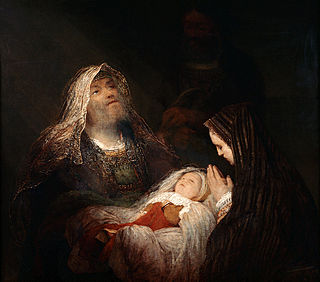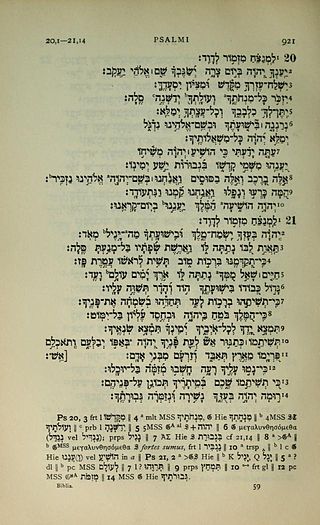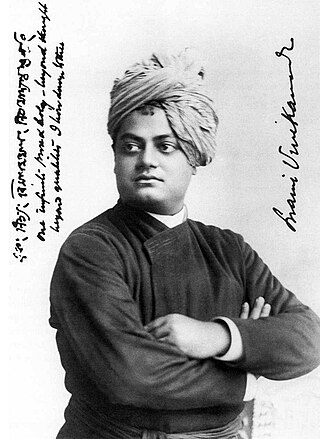Madre Mia is a poem by William Hope Hodgson. It is presented as the dedication to his novel The Boats of the "Glen Carrig".
Madre Mia is a poem by William Hope Hodgson. It is presented as the dedication to his novel The Boats of the "Glen Carrig".
People may say thou art no longer young
And yet, to me, thy youth was yesterday,
A yesterday that seems
Still mingled with my dreams.
Ah! how the years have o'er thee flung
Their soft mantilla, grey.And e'en to them thou art not over old;
How could'st thou be! Thy hair
Hast scarcely lost its deep old glorious dark:
Thy face is scarcely lined. No mark
Destroys its calm serenity. Like gold
Of evening light, when winds scarce stir,The soul-light of thy face is pure as prayer.

Lokasenna is one of the poems of the Poetic Edda. The poem presents flyting between the gods and Loki. It is written in the ljóðaháttr metre, typical for wisdom verse. Lokasenna is believed to be a 10th-century poem.

The word thou is a second-person singular pronoun in English. It is now largely archaic, having been replaced in most contexts by the word you, although it remains in use in parts of Northern England and in Scots. Thou is the nominative form; the oblique/objective form is thee ; the possessive is thy (adjective) or thine ; and the reflexive is thyself. When thou is the grammatical subject of a finite verb in the indicative mood, the verb form typically ends in -(e)st, but in some cases just -t.

The Serenade for Tenor, Horn and Strings, Op. 31, is a song cycle written in 1943 by Benjamin Britten for tenor, solo horn and a string orchestra. Composed during the Second World War at the request of the horn player Dennis Brain, it is a setting of a selection of six poems by English poets on the subject of night, including both its calm and its sinister aspects. The poets Britten chose to set for the Serenade range from an anonymous 15th-century writer to poets from the 17th, 18th and 19th centuries.

The Nunc dimittis, also known as the Song of Simeon or the Canticle of Simeon, is a canticle taken from the second chapter of the Gospel of Luke, verses 29 through 32. Its Latin name comes from its incipit, the opening words, of the Vulgate translation of the passage, meaning "Now you let depart". Since the 4th century it has been used in Christian services of evening worship such as Compline, Vespers, and Evensong.

Psalm 104 is the 104th psalm of the Book of Psalms, beginning in English in the King James Version: "Bless the LORD, O my soul. O LORD my God, thou art very great". In the slightly different numbering system used in the Greek Septuagint and the Latin Vulgate version of the Bible, this psalm is Psalm 103. In Latin, it is known as "Benedic anima mea Domino".

Psalm 89 is the 89th psalm of the Book of Psalms, beginning in English in the King James Version: "I will sing of the mercies of the LORD for ever". In the slightly different numbering system used in the Greek Septuagint and Latin Vulgate translations of the Bible, this psalm is Psalm 88. In Latin, it is known as "Misericordias Domini in aeternum cantabo". It is described as a maschil or "contemplation".

Craigenputtock is an estate in Scotland where Thomas Carlyle lived from 1828 to 1834. He wrote several of his early works there, including Sartor Resartus.
Papyrus Anastasi I is an ancient Egyptian papyrus containing a satirical text used for the training of scribes during the Ramesside Period. One scribe, an army scribe, Hori, writes to his fellow scribe, Amenemope, in such a way as to ridicule the irresponsible and second-rate nature of Amenemope's work. The papyrus was originally purchased from Giovanni Anastasi in 1839.
"How Great Thou Art" is a Christian hymn based on an original Swedish hymn entitled "O Store Gud" written in 1885 by Carl Boberg (1859–1940). The English version of the hymn and its title are a loose translation by the English missionary Stuart K. Hine from 1949. The hymn was popularised by George Beverly Shea and Cliff Barrows during the Billy Graham crusades. It was voted the British public's favourite hymn by BBC's Songs of Praise. "How Great Thou Art" was ranked second on a list of the favourite hymns of all time in a survey by Christianity Today magazine in 2001 and in a nationwide poll by Songs Of Praise in 2019.

Psalm 90 is the 90th psalm of the Book of Psalms, beginning in English in the King James Version: "Lord, thou hast been our dwelling place in all generations". In the slightly different numbering system used in the Greek Septuagint and Latin Vulgate translations of the Bible, this psalm is Psalm 89. In Latin, it is known as "Domine refugium tu factus es nobis in generatione et generatione". It is the opening psalm of Book 4 of the psalms. Uniquely among the Psalms, it is attributed to Moses. It is well known for its reference in verse 10 to human life expectancy being 70 or 80 : it is believed that this verse was the influence for the opening words of Abraham Lincoln's Gettysburg Address.

Psalm 74 is the 74th psalm of the Book of Psalms, beginning in English in the King James Version: "O God, why hast thou cast us off for ever?". In the slightly different numbering system used in the Greek Septuagint and Latin Vulgate translations of the Bible, this psalm is Psalm 73. In Latin, it is known as "Ut quid Deus reppulisti in finem iratus". Subheaded a maschil or contemplation, and a community lament, it expresses the pleas of the Jewish community in the Babylonian captivity. It is attributed to Asaph.
Psalm 90 is a musical composition by the American composer and insurance executive Charles Ives, written in 1923–24.
Coronation Ode, Op. 44 is a work composed by Edward Elgar for soprano, alto, tenor and bass soloists, chorus and orchestra, with words by A. C. Benson.

Psalm 8 is the eighth psalm of the Book of Psalms, beginning and ending in English in the King James Version (KJV): "O LORD, our Lord, how excellent is thy name in all the earth!". In Latin, it is known as "Domine Dominus noster". Its authorship is traditionally assigned to King David. Like Psalms 81 and 84, this psalm opens with a direction to the chief musician to perform upon the gittith, which either refers to a musical instrument, a style of performance, or alludes to persons and places in biblical history.

Psalm 21 is the 21st psalm of the Book of Psalms, beginning in English in the King James Version: "The king shall joy in thy strength". The Book of Psalms is part of the third section of the Hebrew Bible, and a book of the Christian Old Testament. In the slightly different numbering system used in the Greek Septuagint and Latin Vulgate translations of the Bible, this psalm is Psalm 20. In Latin, it is known by the incipit, "Domine in virtute tua". The psalm is attributed to David.

Psalm 44 is the 44th psalm of the Book of Psalms, beginning in English in the King James Version: "We have heard with our ears, O God, our fathers have told us". In the slightly different numbering system used in the Greek Septuagint version of the bible, and generally in its Latin translations, this psalm is Psalm 43. In the Vulgate, it begins "Deus auribus nostris audivimus patres nostri adnuntiaverunt". The psalm was composed by the sons of Korah and is classified in the series of lamentations of the people.
Kumayl bin Ziyad an-Nakha'i was among the most loyal companions of Imam Ali Ibn Abi Talib. Moreover, Kumayl occupies a prominent position in Shia Islam. Converting to Islam during the time of Islamic prophet Muhammad, he rose to a position of prominence during the caliphates of Uthman and Ali. In the caliphate of Ali, Kumayl flourished and served him in the most disciplined of ways. However, he is recognized for his pious and humble nature as well as preserving Imam Ali's teachings. Kumayl is best known for the du'a (supplication) of Prophet Khidr, which is commonly known by the name du'a Kumayl.

Khandana Bhava–Bandhana, or Sri Ramakrishna Aratrikam, or Sri Ramakrishna Arati, is a Bengali song composed by Hindu monk Swami Vivekananda. The song, dedicated to the 19th-century saint Ramakrishna, was composed in 1898. It is a prayer song, based on Raga Mishra Kalyani, Tala Ferta used in Indian classical music.
Contemplations is a 17th century poem by English colonist Anne Bradstreet. The poem's meaning is debated, with some scholars arguing that it is a Puritan religious poem while others argue that it is a Romantic poem.

"The Sun Rising" is a thirty-line poem with three stanzas published in 1633 by poet John Donne. The meter is irregular, ranging from two to six stresses per line in no fixed pattern. The longest lines are at the end of the three stanzas and the rhyme never varies—each stanza runs ABBACDCDEE. Donne's poems were known to be metaphysical with jagged rhythms, dramatic monologues, playful intelligence, and startling images. The poem personifies the sun.